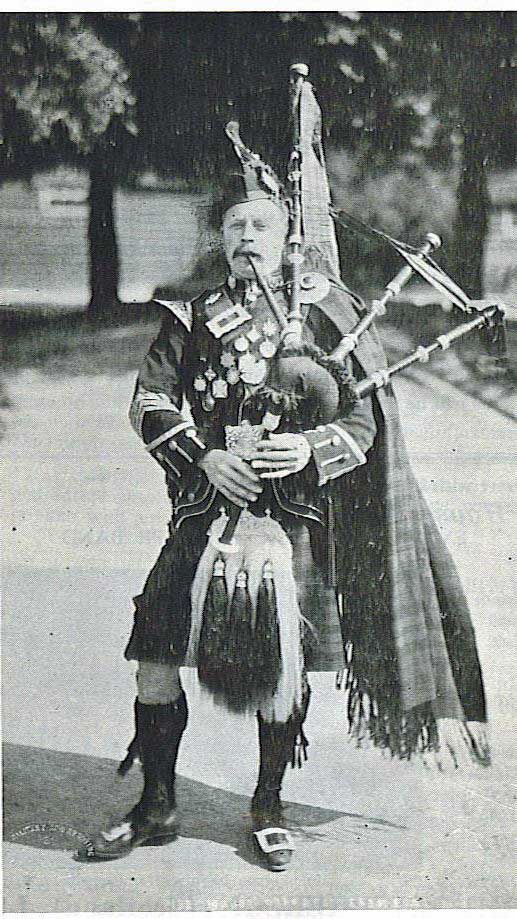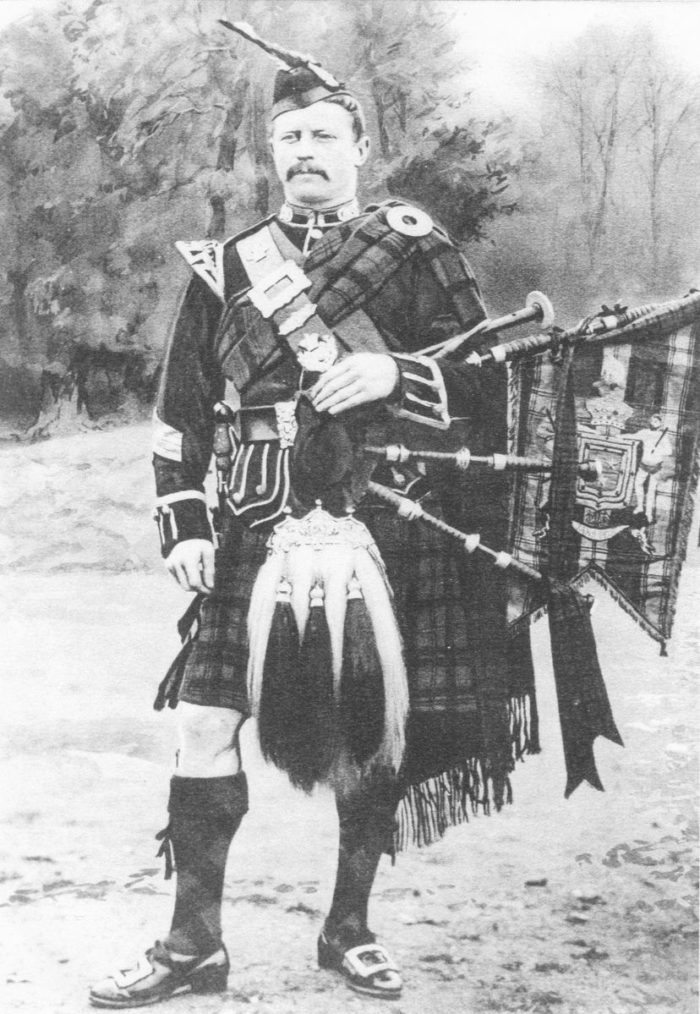William Robb
(1863-1909)
 An excellent player, and winner of both the Gold Medal and the Marches at Oban in 1893, William Robb is best known as the composer of one of the most popular retreat marches ever penned: “When the Battle is Over,” commonly known to pipers as “The Battle’s O’er.”
An excellent player, and winner of both the Gold Medal and the Marches at Oban in 1893, William Robb is best known as the composer of one of the most popular retreat marches ever penned: “When the Battle is Over,” commonly known to pipers as “The Battle’s O’er.”
He was born on July 2, 1863, the eldest of 9 children of Argyll & Sutherland Highlander Sergeant William and Annie Robb. He joined the army as a red-haired lad at age 13 years, 6 months, when he was listed as a drummer. He would later be listed as a piper, and would study under the great Pipe Major Robert Meldrum.
He was Pipe Major of the 2nd Battalion Argyll and Sutherland Highlanders from 1887-1891, and of the 1st Argylls from 1891-1894. He was also famous in his day for a ‘test march’ he made with P/M James MacKay, another A & S Highlander, in 1895 when the two marched 35 miles from Aldershot to Hyde Park Corner playing alternately all the way. He left the regular army in 1897 and later went to the Highland Light Infantry, where he served four years as a Sergeant piper with the 4th Militia Battalion prior to his death. He lived much of his life in Stirling. His son served in the HLI during the Great War, and Robb had a younger brother killed with the Argylls in France in 1915.

The ‘Notices of Pipers’ reports that “at the Glasgow Exhibition Games in 1901, he was 3rd in the competition for piobaireachd (MacDougall Gillies and J. MacColl being 1st and 2nd respectively), and 2nd for marches and for strathspeys and reels (J. MacColl being placed 1st).” He won the Strahspeys & Reels at Oban in 1888. He was known as a very “stylish” player of strathspeys and reels.
In addition to the evergreen “Battle’s O’er, he also composed the excellent 2/4 competition march, “The 93rd Argylls at Modder River.”
William Robb died of of heart problems in his mid-40s on November 9, 1909. He was listed on the death certificate as a “shipyard labourer” and “army pensioner.”
JM, August 2007
-with notes from “Notice of Pipers’ in the Piping Times, August 1974, ‘Piping Traditions of the North of Scotland’, Bridget MacKenzie, 1998, and ‘Pipers of the Highland Regiments 1854-1902’, by R. H. Crawford, published by Savannah, 2009. Janette Montague’s painstakingly uncovered the hitherto unknown date of Robb’s birth and researched the family history.
